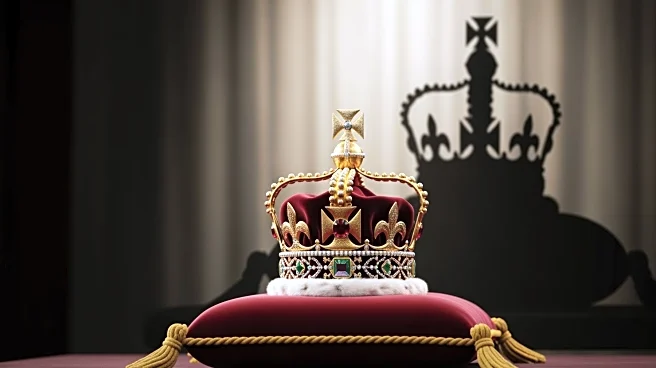What's Happening?
King Charles III has stripped Andrew Mountbatten Windsor, formerly Prince Andrew, of his royal titles in an effort to distance the monarchy from the ongoing Jeffrey Epstein scandal. This decision follows mounting pressure from British politicians and the public.
Despite this action, new emails have surfaced, raising questions about Andrew's relationship with Epstein, suggesting that the scandal is far from over. Andrew was previously accused of rape by Virginia Giuffre, who claimed she was trafficked by Epstein. Although Andrew settled the lawsuit without admitting liability, the controversy continues to affect the royal family. The emergence of these emails indicates that further disclosures may be forthcoming, posing a continued threat to the monarchy's reputation.
Why It's Important?
The decision to strip Andrew of his titles is a significant move by King Charles to protect the monarchy's image. However, the ongoing revelations about Andrew's past associations with Epstein could have lasting implications for the royal family. The scandal has already led to Andrew losing his residence at the Royal Lodge, and he is expected to relocate to the Sandringham Estate. The financial and reputational costs of supporting Andrew could further strain the monarchy's public standing. This situation underscores the challenges faced by the royal family in maintaining its integrity and public trust amidst scandals involving its members.
What's Next?
As the scandal unfolds, King Charles may need to take additional steps to manage the fallout. The public's perception of the monarchy could be influenced by how the situation is handled, particularly if more damaging information emerges. The royal family may need to reassess its support for Andrew to mitigate potential backlash. The ongoing media scrutiny and potential for further revelations suggest that the monarchy will need to remain vigilant in addressing any new developments related to the scandal.
















